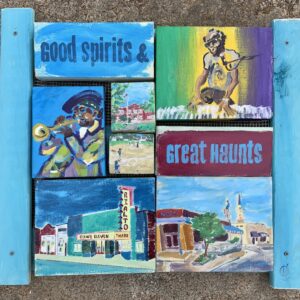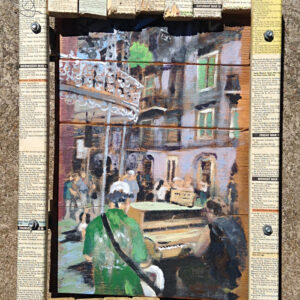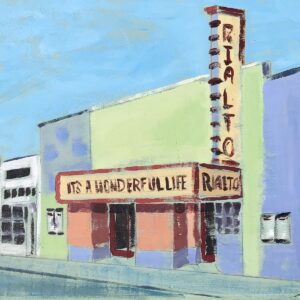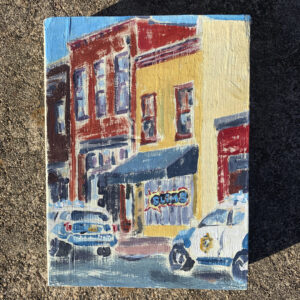Durham, NC, A.K.A, The Bull City was the home of blues artists like Blind Boy Fuller (Fulton Allen) (1907-1941) and Reverend Gary Davis (1896-1972) whose recordings influenced generations of guitar players. During the 1920s – 1940s, Durham was home to African American musicians whose work defined a distinctive regional style. Blues artists often played in Durham’s Hayti community and downtown tobacco warehouse district. Alden “Tarheel Slim” Bunn, Richard and William Trice, and Floyd Council are some of the other well-known North Carolinians who earned their livings playing the blues at private parties and local clubs in Durham and the Piedmont during this time.
When I moved to Durham in the early 1980s I saw Thomas Burt playing festivals and bars in Durham. In his 80s when I saw him, Thomas Burt earned his reputation, playing at house parties, in tobacco warehouses, and at community gatherings from the 1920s through the ’40s. He became a prominent figure in Durham’s flourishing blues community, performing alongside local masters such as Sonny Terry and Blind Boy Fuller.
Big Boy Henry was another blues artist who was playing in Durham in the 80s. I got to know Big Boy and played music with him. Richard “Big Boy” Henry, was born in Beaufort, grew up listening to blues players in New Bern, where his family moved during the Depression. Henry’s friend and mentor, Fred Miller relocated to New York City, Henry visited frequently, where he met Bull City Blues artists Sonny Terry and Brownie McGhee. The three recorded together in 1951. Henry’s song “Mr. President,” written in response to cuts in social welfare programs in the 1980s, earned him a W. C. Handy Award from the Blues Foundation.






Reviews
There are no reviews yet.